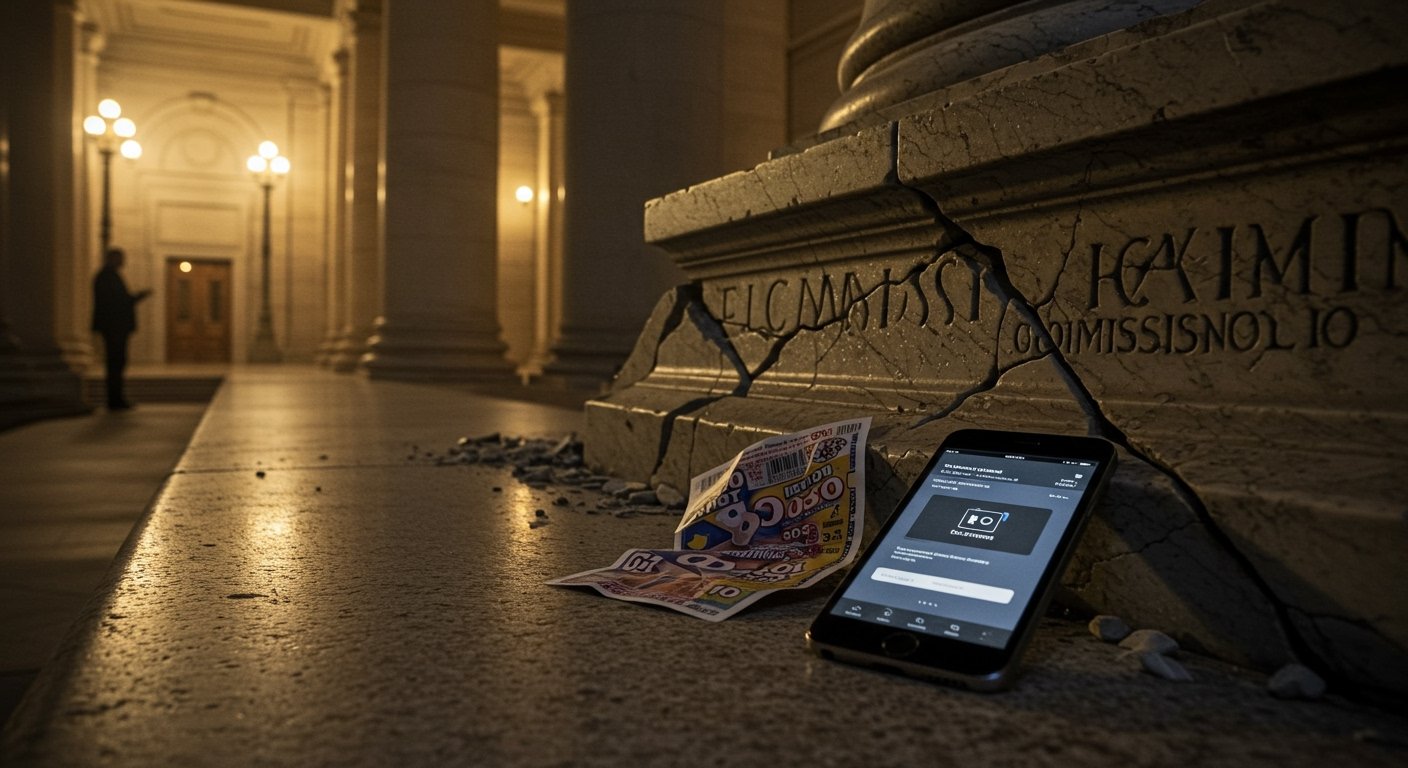AUSTIN, Texas – Governor Greg Abbott on Sunday signed into law Senate Bill 3070, enacting significant changes to the operation and oversight of the Texas Lottery. The legislation ensures the popular state game will continue for another four years but simultaneously imposes rigorous new restrictions and mandates the dissolution of the Texas Lottery Commission, the body that has overseen the lottery since its inception.
The move comes in the wake of several high-profile controversies that have raised questions about the integrity of the game and the adequacy of existing regulations, particularly concerning new technologies facilitating ticket sales.
The Legislation: Senate Bill 3070
Senate Bill 3070, signed by Governor Abbott, represents a critical juncture for the Texas Lottery. Its passage guarantees the lottery’s operation will extend for an additional four years, providing a degree of certainty for state revenue streams reliant on lottery proceeds. However, this extension is coupled with the imposition of substantial new restrictions aimed at addressing perceived vulnerabilities and closing regulatory loopholes.
Crucially, the bill explicitly mandates the abolition of the Texas Lottery Commission. This represents a fundamental shift in the governance structure of the state lottery, transferring oversight responsibilities, though the precise nature of the succeeding structure or entity was not detailed in the provided summary of the law’s immediate effects.
Catalysts for Change: Recent Controversies
The legislative action embodied by Senate Bill 3070 is a direct response to recent events that have cast a spotlight on the Texas Lottery’s operations and regulatory framework. Two controversies were specifically cited as driving forces behind the reforms.
The first involved a single group that achieved a massive win of $95 million in the Lotto Texas game. The group’s remarkable success was attributed to an unusual strategy: purchasing approximately 99% of all available tickets for a specific drawing. This incident, while not explicitly illegal under previous rules, sparked widespread public and legislative concern regarding the fairness and accessibility of the game for average players when a single entity can dominate ticket acquisition to such an overwhelming degree. Critics argued it exploited potential loopholes and undermined the spirit of a game intended for broad public participation.
The second major controversy centered on the proliferation of online ticket sales facilitated by courier apps. These services allowed individuals to order lottery tickets through websites or mobile applications, with couriers then physically purchasing the tickets on their behalf from authorized retailers. The convenience offered by these apps led to their rapid growth in popularity, but also ignited a fierce debate over their legality under existing Texas law.
The Legal Debate Over Courier Sales
The rise of courier app sales created a significant legal gray area. Some lawmakers contended these courier services violated a long-standing state law prohibiting lottery ticket sales “by telephone.” Their argument rested on the interpretation that online orders placed via apps or websites constituted a form of remote transaction analogous to or encompassed by a “by telephone” sale, thereby being illegal.
Conversely, the companies operating these courier services maintained their legality. They argued their business model was distinct from direct remote sales by the lottery or retailers; instead, they acted merely as agents or delivery services purchasing tickets in person on behalf of customers. Furthermore, some couriers claimed they had received prior approval or assurances regarding the legality of their operations from the very body now facing abolition: the Texas Lottery Commission. This conflicting interpretations and alleged prior regulatory tacit acceptance highlighted a regulatory gap or inconsistency that the new legislation sought to definitively resolve.
Impact of the New Law
Senate Bill 3070 directly addresses the controversies by implementing concrete changes. Foremost among these is the fate of the courier services. The new law explicitly criminalizes the online sale of lottery tickets through couriers. This provision effectively shuts down the business model that had sparked the legal debate and legislative scrutiny. It aims to clarify state law and reinforce that lottery ticket sales must occur through authorized, in-person channels or other methods explicitly permitted by law, which now excludes remote ordering via courier platforms.
The abolition of the Texas Lottery Commission marks a pivotal change in the administrative landscape. As the primary oversight body, its disbanding necessitates a transition of its responsibilities – which included licensing retailers, overseeing game operations, ensuring security, and interpreting regulations – to another state entity or a newly designated structure. While the summary doesn’t specify the successor body, the continuation of the lottery itself means these critical functions must be absorbed elsewhere within the state’s administrative framework.
The bill’s imposition of further new restrictions, beyond the courier ban and commission abolition, signals a broader legislative intent to tighten controls and enhance oversight of the lottery’s operations. The specific details of all these restrictions were not itemized in the provided information, but they are part of the comprehensive package of reforms enacted by SB 3070.
Looking Ahead
The passage and signing of Senate Bill 3070 represent a significant restructuring of how the Texas Lottery is managed and accessed. By abolishing the Commission and criminalizing online courier sales, the state government is taking decisive action to address specific controversies and concerns about regulatory oversight and game integrity. The legislation aims to ensure the lottery’s future financial contribution to the state over the next four years while seeking to restore public confidence through enhanced restrictions and a revamped administrative structure. The implementation of these changes and the transition of the Commission’s duties will be closely watched as the Texas Lottery enters this new era of operation.






